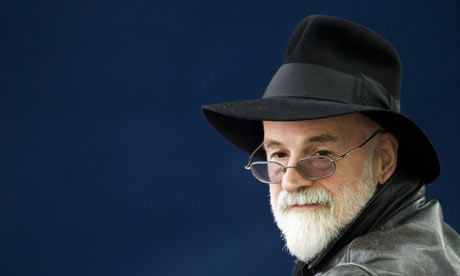In the last two-plus decades as the Republican Party's drift to the right morphed into a full-blown gallop and the party's base came to be dominated by Bible thumpers and angry white men -- and frequently Bible thumping angry white men -- the GOP has won only two of six presidential elections, one because the Supreme Court gave the Constitution the finger and the other because Republicans had perfected their fear machine message and the Democratic candidate was weak.
It is probable that Republicans will not halt their losing streak in 2016. This is less because the first joker out of the gate in the quadrennial clown car race known as the party's presidential primary is Ted Cruz, soon to be followed by Marco Rubio, than good old mathematics. While Cruz, Rubio and many other GOP stalwarts may insist global warming is a hoax, not even these junk science devotees can deny that despite Hillary Clinton's vulnerabilities, the probable Democratic standard bearer begins the 2016 race a mere 24 electoral votes shy of the 270 needed to win.
The Democrats have 246 electoral votes more or less in the bag: California (55), Connecticut (7), Delaware (3), District of Columbia (3), Hawaii (4), New Hampshire (4), Illinois (20), Maryland (10), Massachusetts (11), Maine (4), Minnesota (10), Michigan (16), New York (29), New Jersey (14), Oregon (7), Pennsylvania (20), Rhode Island (4), Vermont (3), Wisconsin (10) and Washington (12). Sure, you can quibble about a couple of these states, but the fact remains that the Democrats' traditional political base remains as solid as the Rock of Gibraltar and although the eventual Republican nominee will be a conservative in moderate drag like Jeb "Gator" Bush or Mike "We've Got a Perception Problem" Pence, the hardcore right-wing tail wagging this flea-infested dog helps insure that retaking the Oval Office will be illusory.
The conventional wisdom has it that another divisive cage match with Cruz, Rubio and perhaps Mike Huckabee, Chris Christie, Rick Perry, Scott Walker and, if there really is a God, the good doctor Ben Carson not unlike the 2012 Republican primary benefits Democrats generally and Clinton in particular. But whether the 2016 primary is another battle for the soul of the party, yada yada yada, methinks that whomever gets the nomination (more likely Jeb Bush than not) will need to have a well-oiled campaign machine in order to prevail at the party convention (July 16-21, 2016 in Cleveland), which should toughen him for the fall slugfest against Hillary, while voters (who have notoriously short attention spans) will be more focused on stuff that really matters.
This stuff includes the economy, which could be a winner for the Republican nominee if President Obama's impressive stewardship of the economic recovery necessitated by the (Not Jeb Bush) Bush Recession craps out. Then there are sure losers for the Republicans, including reproductive rights and racial and gender equity, same-sex marriage and immigration, as well as the inconvenient reality that the U.S. is becoming browner and blacker, which is to say less and less Republican.
But back to the cudgel-wielding Cruz, an egomaniac whose chief credentials are that he has an incurable case of Obama Derangement Syndrome, is widely loathed by his fellow U.S. senators, has repeatedly tried to shut down the U.S. government in actions bordering on the traitorous, and is unrelenting in trying to ram his religion and extremist views down everyone's throats to win brownie points with Tea Partiers and Evangelicals.
If having virtually no public sector experience is a requisite for becoming president, then the Canadian-born (shhh!) Cruz is a natural.
If embellishing on his credentials to drive the clown car by reading Dr. Seuss's classic Green Eggs and Ham and its "I do not like it" mantra while filibustering a Democratic move to block defunding Obamacare, then he'll fit right in at White House events like the annual Easter egg hunt.
If opposing net neutrality because it would be another example of "government tyranny," as he puts it, garners big buck donations from Comcast and Time Warner, then he's smarter than I have been willing to give him credit for.
And if leading opposition to Obama's eminently able surgeon general nominee amidst the ebola public-health crisis because the nominee once had the temerity to suggest that the carnage from gun violence is something of a public health crisis itself, his tenure as a darling in the Fox News echo chamber is guaranteed.
Never mind that "it would take a coordinated series of 16 or so lightning strikes to make Ted Cruz the 45th president of the United States," as my friend Will Bunch puts it. Cruz is an idiot. No, make that a dangerous idiot.
PHOTOGRAPH BY JASON REID/REUTERS














